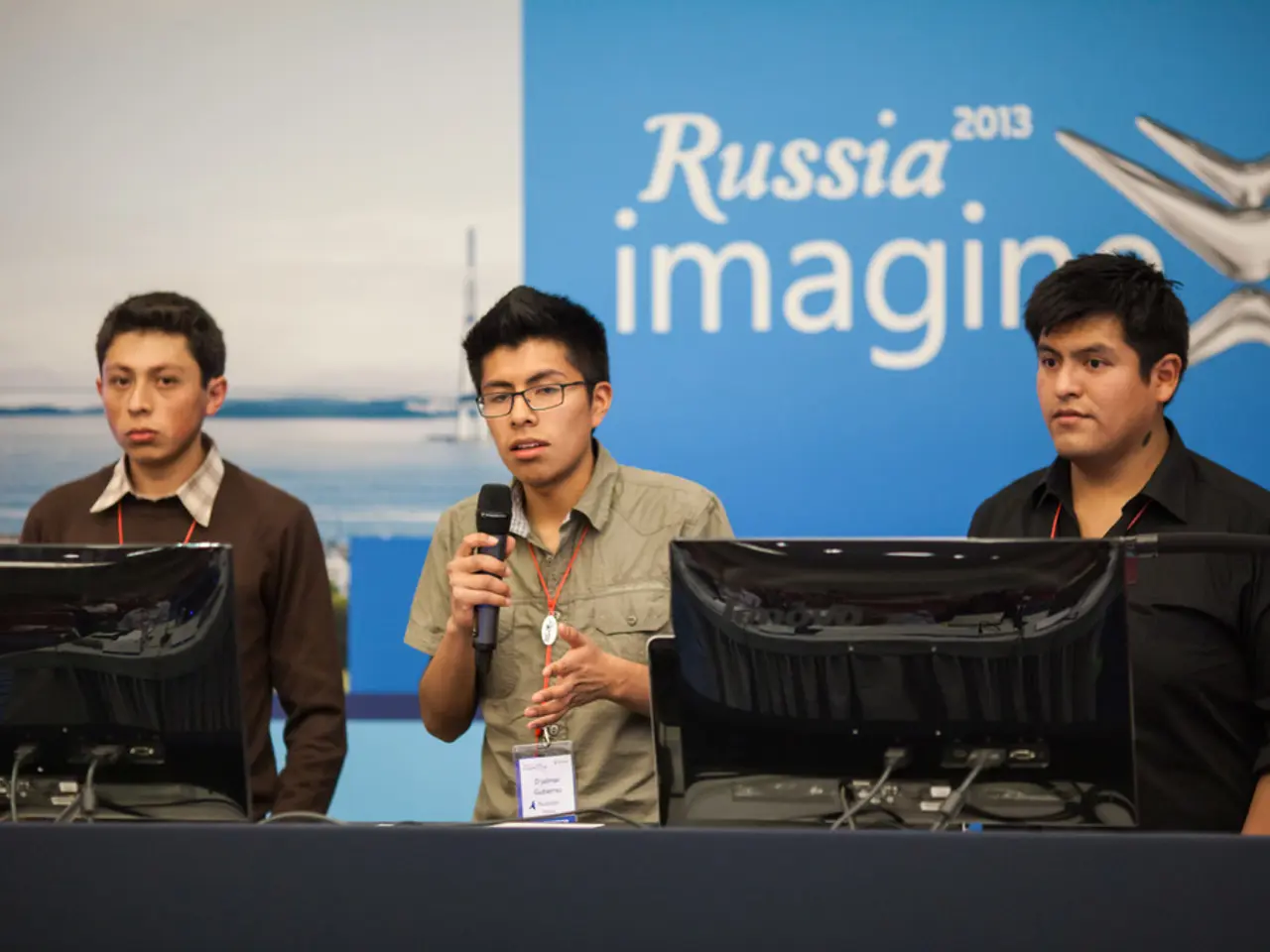Ukraine demonstrating resilience as war-torn democracy, while Georgia faces decline as a significant ally following years of conflict
In the heart of Eastern Europe, Ukraine stands as a "war-tested democracy," demonstrating remarkable resilience in its civil society, according to veteran foreign correspondent, author, and columnist at Foreign Policy, Christian Caryl. Yet, the country faces internal and external leadership challenges, with the former President Donald Trump's approach to Russia and Ukraine adding an extra layer of instability to U.S.-Ukraine relations.
Trump's strategy towards Ukraine was marked by a primary goal to end the ongoing conflict, but not necessarily to safeguard Ukrainian democracy. This approach, which prioritized ending conflict over supporting Ukraine’s democratic institutions, complicated the relationship between the two nations.
The attacks on the anti-corruption agency in Ukraine revealed real malfeasance by people at the highest levels of the Ukrainian government, a fact that was not lost on Trump. However, his unwillingness to cede power to Congress was evident in his insistence on having the sole power to call off proposed sanctions.
Meanwhile, Trump's bill sponsors in the Senate, Graham and Blumenthal, proposed draconian secondary sanctions on countries buying Russian oil. Yet, Trump has not expressed approval or disapproval of the bill, leaving its fate uncertain.
Trump's deal with Europe regarding Ukraine's weapons supply has reduced America's direct involvement, with the Europeans now responsible for finding the money and providing the weapons. The exact quantities of weapons Ukraine is receiving, including Patriot systems, and when they will be delivered, however, remain unclear.
President Zelensky, on the other hand, has not formed a national unity government, a move that could spell trouble for him in the post-war period when Ukraine needs an administrator more than a wartime leader. His confrontation with Trump in the White House, however, has boosted his popularity among a wide segment of the Ukrainian population.
Despite the protests, Ukraine's reputation in Europe and among most Americans has not been harmed. However, there have been concerns in the EU about some of Zelensky's dubious moves, such as putting pressure on media outlets and opposition parties. His Chief of Staff, Andriy Yermak, has been attributed to a pattern of concerning developments, including the concentration of power in his own hands.
The potential strategy on Russia involving tariffs proposed by Trump is met with doubts about his commitment to follow through. His deadlines to Putin regarding the war in Ukraine are seen as unreliable and potentially more of a green light than a warning.
In contrast, the Biden administration's stance on Ukraine is more consistent, although even the current U.S. support for Zelensky faces challenges and signs of fatigue. The protests in Ukraine have allowed the Europeans to voice criticisms of President Zelensky and his administration that they were probably too timid to express earlier.
China, too, has shown a strategic interest in Ukraine. Chinese FM Wang Yi stated that China cannot afford Russia to lose in Ukraine, implying a potential risk for Ukraine if it were to lose to Russia. Russia, already dependent on China for tech and energy needs that it can no longer access from Europe, adds another layer of complexity to the geopolitical landscape of Eastern Europe.
In conclusion, Ukraine under Zelensky is a resilient democracy, but it faces internal and external leadership challenges. Trump's erratic dealings with Russia and Europe added instability to U.S.-Ukraine relations, a contrast to the more sustained support from subsequent administrations. As the situation in Ukraine continues to evolve, it remains to be seen how these challenges will be addressed and what the future holds for this war-tested democracy.
[1] Caryl, Christian. "Ukraine's War-Tested Democracy." Foreign Policy, 26 Aug. 2020, foreignpolicy.com/2020/08/26/ukraines-war-tested-democracy-zelensky-russia-trump-biden-china-europe/. [2] "U.S. Support for Ukraine Faces Challenges and Signs of Fatigue." Foreign Policy, 26 Aug. 2020, foreignpolicy.com/2020/08/26/us-support-for-ukraine-faces-challenges-and-signs-of-fatigue-zelensky-russia-trump-biden-china-europe/. [3] "Trump's Dealings with Russia Complicate U.S.-Ukraine Relations." Foreign Policy, 26 Aug. 2020, foreignpolicy.com/2020/08/26/trumps-dealings-with-russia-complicate-us-ukraine-relations-zelensky-russia-trump-biden-china-europe/. [4] "China Cannot Afford Russia to Lose in Ukraine." Foreign Policy, 26 Aug. 2020, foreignpolicy.com/2020/08/26/china-cannot-afford-russia-to-lose-in-ukraine/. [5] "Ukrainian Citizens Show Resilience in Civil Society." Foreign Policy, 26 Aug. 2020, foreignpolicy.com/2020/08/26/ukrainian-citizens-show-resilience-in-civil-society/.
- The complex relationship between the United States and Ukraine, particularly during the Trump administration, was influenced by politics and general news events such as war-and-conflicts, as Trump's approach to Russia and Ukraine added an extra layer of instability to U.S.-Ukraine relations.
- Despite the internal and external challenges faced by Ukraine, its civil society has demonstrated remarkable resilience, as evidenced by the actions of its citizens and the persistence of its democratic institutions, even in the face of adversity and international conflict.







